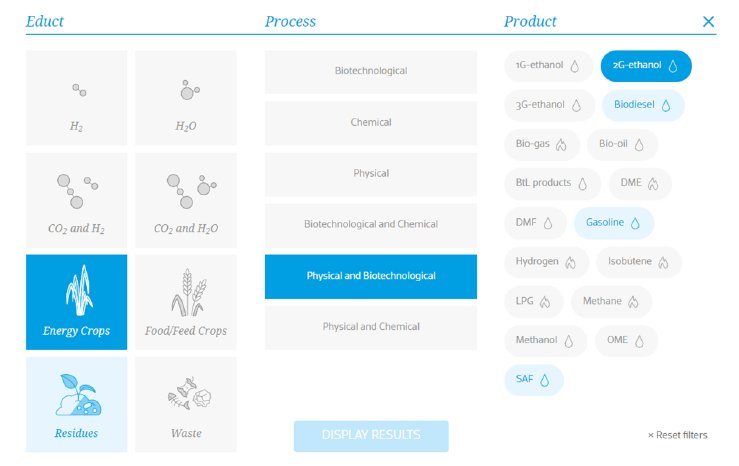Following the energy sector and industries, traffic is the third biggest global CO2 producer and in dire need of sustainable alternatives. Fuel quality in particular plays a decisive role in this environment. Scarce fossil resources, the threats of climate change, the demand for environmentally friendly alternatives and the urgent need for energy security serve as further cornerstones in the search for new and advanced fuels. These advanced fuels virtually abolish the utilization of crude oil through the development of innovative and environmentally friendly technologies, which achieve CO2-neutrality during production and combustion.
Advanced fuels are mostly of biogenic or synthetic origin. Biogenic fuels are derived from plants, waste or manure, synthetic fuels are produced chemically. These alternative fuels have already been used in many fields and are usually mixed with their conventional counterparts.
This new fuel generation provides significant economic potential due to innovative technologies, great efficiency, and the decreasing need for production space. Analogous to the development of e-mobility and the hydrogen strategy, investment expenses can be high and call on political stakeholders to promote the building of capacities by corresponding investment incentives. In a best-case scenario, alternative biofuels can foster the achievement of climate protection goals.
Back in 2019, the IBB collected data of players active in the field of advanced fuels as part of the SUNLIQUID project. As a result, a brochure was produced for a political workshop in Brussels, which summed up the most relevant technologies at that point in time. In order to take this information to a new level and make it permanently adaptable, the IBB has now developed an interactive matrix covering a large range of sustainable fuels. In this database (https://www.ibbnetzwerk-gmbh.com/sustainable-fuels), educts, processes and products can be selected, guiding the user to the corresponding sustainable fuel producer/technology.
This ‘living and growing’ database of advanced fuels is designed to serve as an intuitive reference for the current state of research, technology and innovation in the area and appeal to lay as well as expert audiences. The authors invite all interested parties to explore the user-friendly tool for their research and provide highly welcome feedback on the experience or the addition of further technologies.



